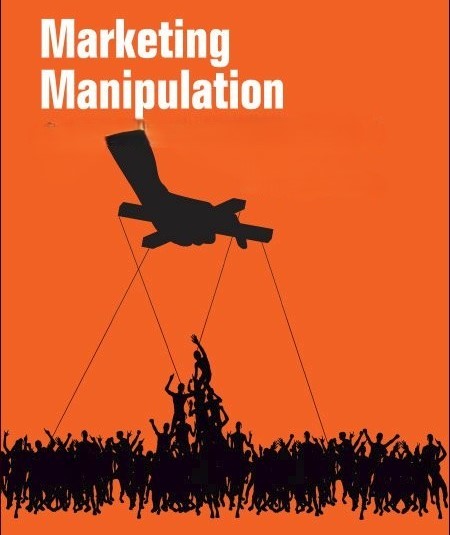The Politics of Addiction: How Industries Exploit Children for Profit
The politics of addiction targeting children is a global crisis, where corporations prioritize profit over public health, exploiting young minds through manipulative marketing tactics. From ultra-processed foods to nicotine products, industries strategically design and market addictive substances, ensuring lifelong consumer dependency.
This article explores how industries sell addiction to children, the political and corporate influence behind it, and policy recommendations to combat this harmful trend.
How Industries Sell Addiction to Children
Industries use psychological manipulation, deceptive marketing, and regulatory loopholes to hook children onto addictive products. Here’s how:
1. Ultra-Processed Foods & Sugary Snacks
- Artificial flavors, excessive sugar, and colorful packaging make children crave unhealthy foods.
- Cartoon characters & celebrity endorsements normalize junk food consumption.
- High sugar content triggers dopamine responses, creating lifelong cravings.
2. Tobacco & Nicotine Products
- Flavored nicotine & e-cigarettes are marketed as “cool” alternatives to traditional smoking.
- Social media influencers subtly promote vaping, making it socially acceptable.
- Weak regulations allow tobacco companies to bypass advertising bans, targeting youth indirectly.
3. Digital Marketing & Influencer Partnerships
- Social media campaigns glamorize unhealthy habits, making them trendy.
- Gaming & streaming platforms integrate ads for sugary drinks, fast food, and nicotine products.
- Children are exposed to thousands of ads daily, shaping their consumption behaviors.
4. Regulatory Loopholes & Corporate Lobbying
- Industries exploit weak policies, ensuring minimal restrictions on harmful products.
- Corporate lobbying influences political decisions, preventing strict regulations.
- Governments struggle to enforce bans, allowing harmful industries to operate with impunity.
The Political & Corporate Influence Behind Addiction Marketing
1. Governments Struggle to Regulate
- Many nations fail to restrict marketing of unhealthy products, despite WHO and UNICEF recommendations.
- Political pressure from corporations prevents stronger consumer protection laws.
2. Corporate Electioneering & Policy Manipulation
- Industries co-opt political agendas, ensuring minimal restrictions on harmful products.
- Campaign donations & lobbying efforts influence government decisions.
3. Public Health vs. Profit
- The conflict between economic interests and child welfare remains a global challenge.
- Governments hesitate to regulate industries that contribute billions in revenue.
What Can Be Done? Policy Recommendations & Global Case Studies
1. Ban Deceptive Advertising Targeting Minors
- Enforce strict age-specific advertising bans to prevent companies from exploiting young minds.
- Regulate sponsorship deals, especially in sports and entertainment, to reduce exposure to addictive products.
2. Stronger Labeling & Transparency Regulations
- Mandate clear labeling on processed foods, tobacco, alcohol, and digital content to warn consumers about harmful effects.
- Implement plain packaging rules for products like tobacco and flavored nicotine, reducing attractiveness for young users.
3. Higher Corporate Accountability Standards
- Introduce financial penalties for companies proven to use manipulative marketing targeting children.
- Hold CEOs and executives legally accountable for violations of health policies.
4. Digital & Social Media Oversight
- Strengthen AI-driven monitoring to identify harmful digital marketing practices aimed at minors.
- Implement strict age verification systems across online platforms to limit access to addictive content.
5. Public Awareness & School-Based Education Campaigns
- Launch government-funded awareness drives about corporate deception and addiction.
- Integrate consumer education into school curriculums, teaching young people how to recognize manipulative marketing tactics.
Corporate Manipulation & Addiction Marketing: The Hidden Loopholes Enabling Harmful Industries
As governments struggle to regulate addiction-based marketing, corporations exploit loopholes to ensure their products remain accessible to young consumers. Below, we examine key industry loopholes, regulatory gaps, and policy solutions to counter deceptive marketing strategies.
How Corporations Exploit Loopholes to Market Addiction
Industries use creative tactics and weak regulations to circumvent bans on harmful marketing. Here’s how:
1. Targeted Social Media Algorithms
- AI-powered ad placements tailor content to young viewers, bypassing age restrictions.
- Influencer partnerships disguise product promotions as “lifestyle choices.”
- Brands sponsor viral challenges, making addictive products appear trendy.
2. Misleading “Health-Conscious” Branding
- Tobacco companies label low-nicotine products as “safer alternatives.”
- Processed food brands use “organic” or “natural” terms, even when full of chemicals and sugar.
- Alcohol brands promote “low-calorie” drinks, misleading consumers on health risks.
3. Hidden Advertisements in Digital Entertainment
- Junk food, alcohol, and tobacco placements are embedded into movies, TV shows, and video games.
- Companies bypass ad restrictions through indirect brand sponsorships.
- Streaming services allow unregulated advertising, exposing children to addiction-linked products.
4. Weak Age Verification Systems
- Online stores and apps fail to enforce strict identity checks, allowing minors to buy addictive products.
- AI-driven “personalized ads” bypass age filters on platforms like Instagram & TikTok.
5. Celebrity & Athlete Endorsements
- Athletes unknowingly promote addictive snacks & energy drinks tied to unhealthy consumption habits.
- Tobacco brands use historical imagery, linking smoking to powerful role models.
Policy Solutions & Recommendations for Reform
1. Strict Ad Regulations for Digital Platforms
- Government oversight on AI-driven ad placements.
- Penalty system for brands violating age-restriction laws.
2. Transparency in Product Labeling
- Mandatory health warnings for tobacco, alcohol, and ultra-processed foods.
- Legally enforceable definitions for “organic,” “natural,” & “low-calorie” branding.
3. Corporate Accountability Measures
- Financial penalties for deceptive marketing campaigns.
- Legal action against brands bypassing child safety policies.
4. Consumer Awareness Campaigns
- Public education on recognizing misleading ads.
- School programs promoting critical media literacy.
Global Case Studies of Corporate Accountability
- EU’s Digital Ad Transparency Act (2023) – Companies must disclose targeted ad funding to prevent deceptive marketing.
- Mexico’s Junk Food Ban in Schools (2022) – Prohibited processed food advertisements in educational institutions.
- Australia’s Vape Regulation Bill (2021) – Introduced strict packaging and advertising bans on flavored nicotine.
Global Case Studies: Corporate Accountability in Action
- Australia’s Plain Packaging Law (2012) – Cigarette companies fought against mandatory plain packaging, but the government upheld regulations, reducing smoking rates among minors.
- UK’s Sugar Tax Policy (2018) – Introduced a levy on sugary drinks, forcing brands to reduce sugar content, significantly impacting childhood obesity rates.
- France’s Ban on Junk Food Ads Targeting Kids (2021) – Restricted child-focused advertisements for unhealthy food, improving nutrition awareness among families.
- EU’s Crackdown on Targeted Digital Ads for Children (2022) – Imposed new data privacy laws, limiting corporate access to youth-oriented digital marketing strategies.
- India’s Tobacco Advertisement Ban (2003) – Strengthened restrictions on tobacco sponsorship, especially in sports and entertainment, lowering youth exposure to smoking-related campaigns.
The Future of Corporate Accountability & Consumer Protection
- Governments must take bold action against powerful industries profiting from addiction-based marketing.
- Social movements and consumer advocacy will play a crucial role in pressuring policymakers to introduce reforms.
- Businesses should be encouraged to adopt ethical practices, prioritizing public health over profit motives.



